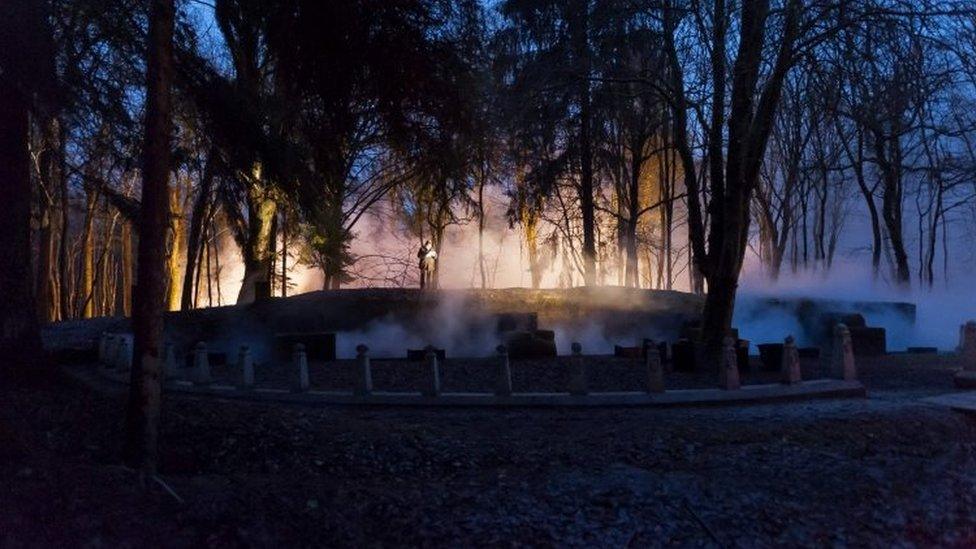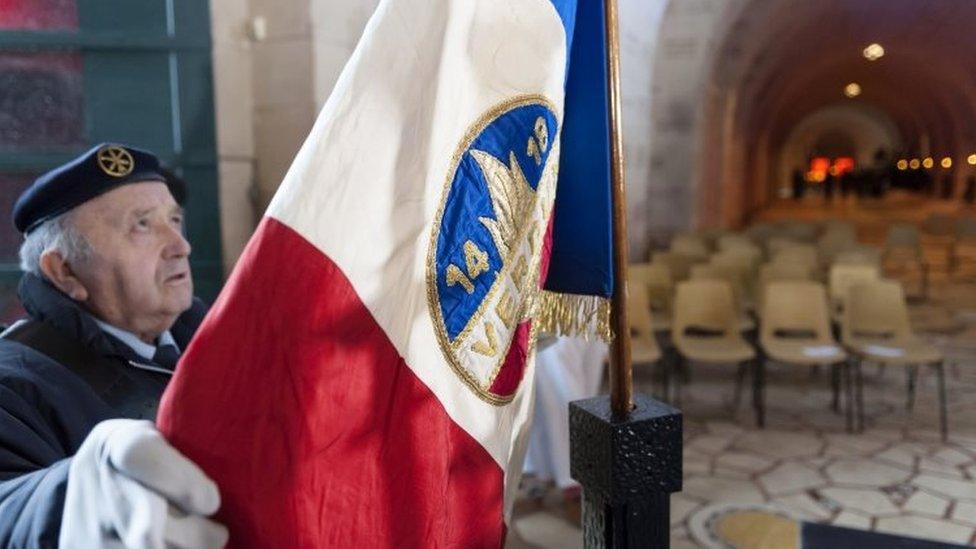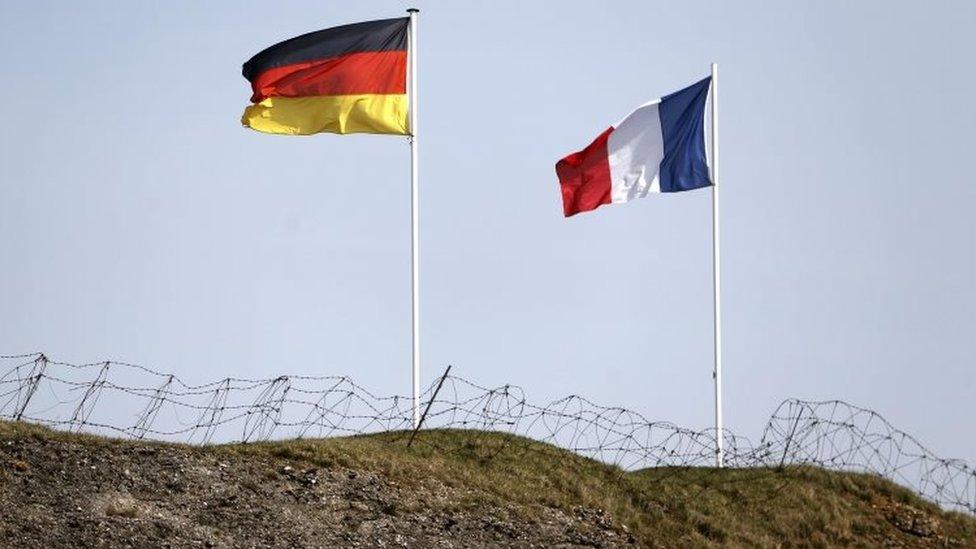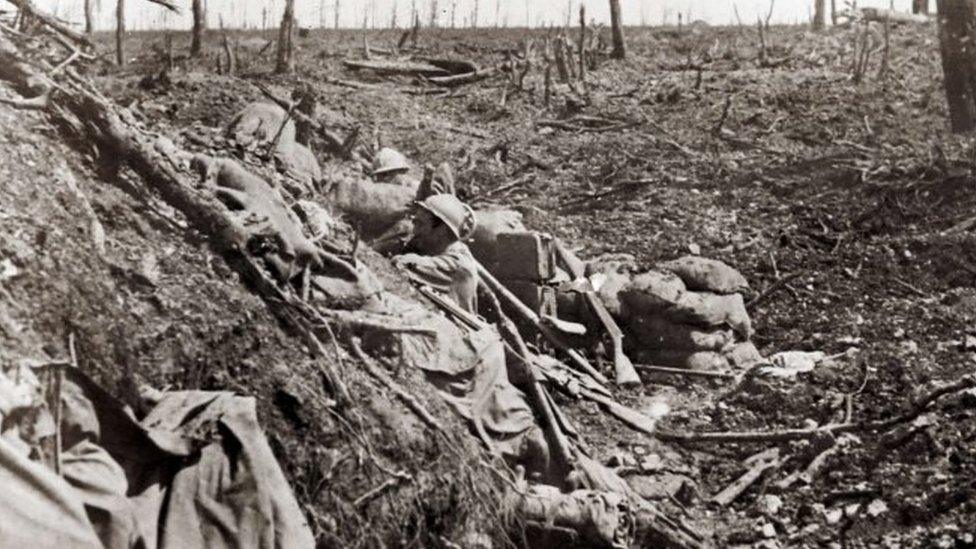France commemorates centenary of WW1 Battle of Verdun
- Published
The anniversary of the Battle of Verdun, one of the bloodiest of WW1 has been marked by a re-enactment in France
France has been marking the centenary of the Battle of Verdun - one of the most savagely fought and highest casualty battles of World War One.
About 300 people in period costume gathered at dawn at the site to march down the narrow lane where the fighting began exactly 100 years ago.
The battle lasted 300 days and left an estimated 800,000 soldiers dead, wounded or missing.
The Germans fired two million shells in the opening eight-hour bombardment.
About 30 million shells are estimated to have been fired over the course of the conflict in north-east France.

The re-enactment featured the sound of shell fire which began 100 years ago on Sunday

Verdun is also remembered for French General Robert Nivelle's stirring phrase, "On ne passe pas" ("They shall not pass")

It was not until 1984 that France and Germany could agree to joint commemorations of the battle
Schoolchildren from both Germany and France are attending the commemorations. With all those who took part in the battle now dead, the focus of the commemorations is now on educating the young.
"It was here, 100 years ago, that the first shells fell," said one of the actors taking part in the re-enactment of the opening of the battle, alongside the the sound of accompanying explosions.
The Verdun Memorial has been renovated for the centenary.
The aim of the German offensive, according to commander-in-chief Erich von Falkenhayn, was to "bleed France dry".
The ensuing carnage was waged over a tiny stretch of land and ended with neither side making any significant headway.
Around 300,000 French and German soldiers died in the 10-month battle which became known as the "hell of Verdun".
The battle is also remembered for French General Robert Nivelle's stirring phrase, "On ne passe pas" ("They shall not pass") - words which came to exemplify French resistance to Germany.
Such was the trauma of the battle that it was not until 1984 that the governments of France and Germany could contemplate joint commemorations.


The battle of Verdun
Verdun - a strong point on the long frontline dividing the French and German armies - was the longest battle of the First World War
At the end of the bloodshed, France emerged as the victor, by December winning back nearly all the territory it had lost in February
General Erich von Falkenhayn, the Chief of the General Staff and Germany's principal strategist, targeted Verdun because of its position on the Allied line and its sentimental value to French people
Falkenhayn hoped to combine the Verdun offensive with a U-Boat offensive against British shipping. The two campaigns together should have brought France and Britain to terms.
But Falkenhayn's plan for an attack that would economise on German resources failed to work out as he expected. He used many more divisions than planned
Germany like France accumulated huge losses and gained little territory, leading it to throw more and more men into the conflict: Verdun soon became a battle of prestige for the Germans, as well as the French

- Published17 September 2015
